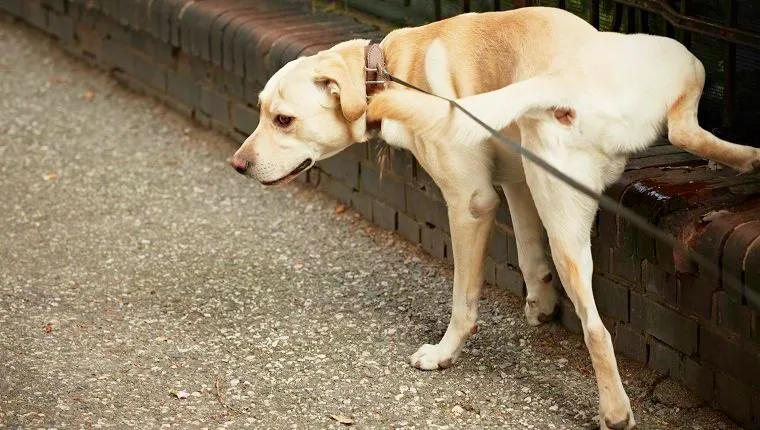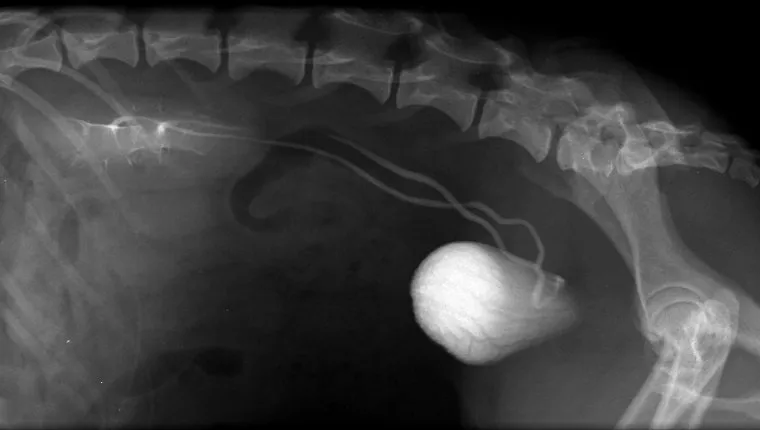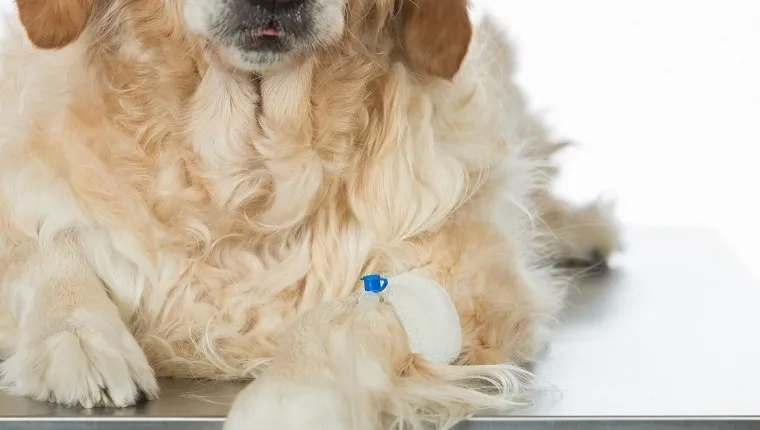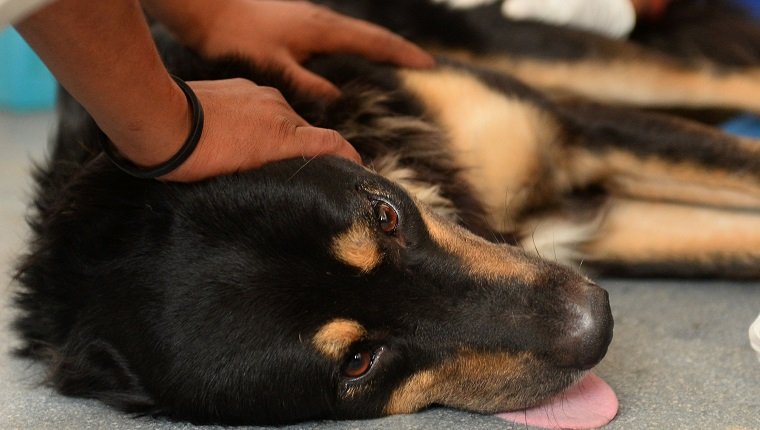Hydronephrosis in dogs happens when one or both kidneys are swollen due to a buildup of urine, which happens when fluid can’t properly drain from the kidney to the bladder for release. This can occur due to a variety of reasons, including kidney obstruction, kidney stones, tumors, disease, or injury.
Though it can affect dogs of any age, it’s most common in older dogs. Symptoms can mimic those of urinary tract infections or other kidney or bladder issues. Hydronephrosis is, itself, a symptom of underlying medical conditions.
This is why you must consult a veterinarian for a proper diagnosis and treatment if you see the signs in your dog. Here’s what you should know about the symptoms, causes, and treatments for hydronephrosis in dogs.
Symptoms Of Hydronephrosis In Dogs

The symptoms of hydronephrosis in dogs may be mild or generalized, and they can vary widely. This is one reason you must consult your vet when you spot symptoms, as they may be a sign of a serious medical issue that requires early treatment.
Here are some possible signs that a dog may be suffering from hydronephrosis:
- Loss of appetite
- Abdominal distension
- Incontinence
- Excessive thirst
- Increased urination
- Blood in the urine
- Weakness
- Abdominal pain
- Lower back pain
- Bad breath
- Mouth sores
- Vomiting
- Anemia
Causes Of Hydronephrosis In Dogs

There are several possible causes of hyrdonephrosis in dogs. Basically, anything that disrupts the flow of urine from the kidneys to the bladder can result in the condition.
Rarely, puppies may be born with the condition, or female puppies who are spayed at a young age may suffer from hyrdonephrosis as a complication of the spaying surgery. However, hydronephrosis is more common in older dogs.
Here are several possible causes of hydronephrosis:
- Kidney stones
- Urinary tract obstructions
- Tumors/cancer
- Fibrosis
- Prostate disease
- Vaginal mass
- Abscesses
- Cysts
- Hematomas
- Perineal hernia
- Narrowing of urinary passageways
- Bacterial, fungal, or parasitic infection
Treatments For Hydronephrosis In Dogs

Treatment for hydronephrosis in dogs often begins with intravenous fluids, especially for dogs who’ve been urinating excessively. The medical treatment that follows is often based on the underlying cause of the condition. If an infection is the cause, then vets may provide antibiotics.
In some cases, stones in the urinary tract may dissolve with dietary changes. However, if this is not an option, vets may perform surgery to remove a stone or blockage in the urinary tract. Shock wave therapy, which uses shock waves to break up stones, could be another option that a vet considers.
If a blockage is present, then vets may use a catheter to empty the bladder. In the case of cancer, vets may use chemotherapy, or if tumors affect a kidney, vets may remove the organ. Sometimes vets may surgically place ureteral stents, which are hollow, plastic tubes, between the kidney and the bladder, to help keep urinary passageways open.
Dietary changes can often help prevent stones from developing in the future. It’s also important to keep dogs hydrated as they recover from hydronephrosis and any conditions that cause it.
Vets should be on the lookout for signs of further kidney disease or renal failure and prescribe treatment and lifestyle changes accordingly.
Has your dog ever suffered from hydronephrosis? What was the cause? Let us know in the comments below!









